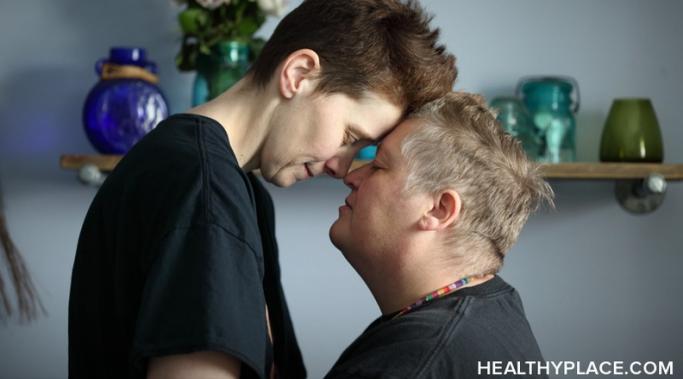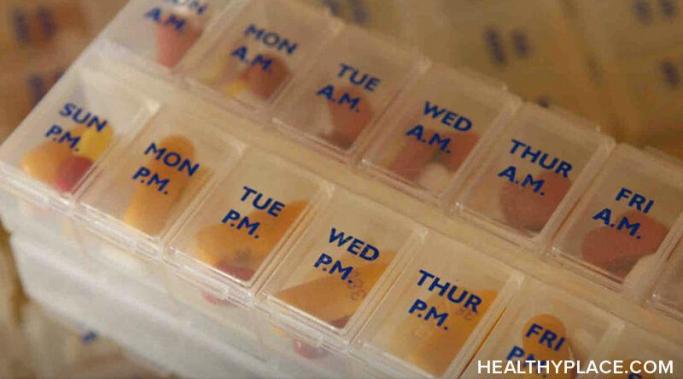It's very important to take other peoples' trauma seriously, but sometimes, families struggle to do so. I made a video explaining my experience with family trauma and gaslighting.
Medication and Mental Illness
I've been learning in therapy that so many of the things I've accepted as "fact" all my life are actually subjective beliefs passed down from my family. I loved the challenge my therapist set me this week of deconstructing my family's beliefs on various topics, including mental health.
Everyone has different coping methods that they choose to use, and it can sometimes seem like not all coping mechanisms are as helpful as others. There might come a time when you have to come to terms with and accept a loved one's preferred coping method. This is the story of a time I went through that situation.
Even though we belong to the same family, not all of my siblings had the same experience growing up -- one of us grew up with attention-deficit/hyperactivity disorder (ADHD). Where I had the luxury of growing up as a focused straight-A student, my brother was not so lucky. When he was diagnosed with ADHD, my family began to understand that he was different. I wanted to share this story so that the people who feel different no longer have to feel so alone.
It can be difficult to watch a loved one's mental health deteriorate when they struggle with the prescribed medication they need. It is also confusing when a family member chooses not to take their prescribed medication even when they know it will help them. In this article, I wanted to reach out to my family to understand their point of view when they do this.
When we were little, I spoke on behalf of my brother a lot because he had a speech delay. He would regularly mix up or mispronounce his words, and I would find myself acting as some sort of amateur translator when he spoke to anyone outside our immediate family. My most commonly used phrase was, "What he's trying to say is . . ."
Since my brother was diagnosed with anxiety and depression, all types of people have tried to give him advice on his mental health symptoms. Many of these people have no experience of a mental health diagnosis themselves -- and while they mean well, their mental health advice could actually exacerbate depression and anxiety symptoms if my brother followed it.
In marriages with mental illness, one of the biggest struggles can be the loss of a couple's sex life. But, you can revive your sex life. Because of the side effects of medications, symptoms of mental illness, and conflicts within the marriage, many couples struggling with mental illness are also suffering from a lack of sexual connection. But, there is hope. Here are five ways to revive your sex life in spite of mental illness in your marriage.
When a marriage contains a mental illness, you should make a wellness contract to create boundaries.With a 90 percent divorce rate for couples in which one spouse has bipolar disorder, I realize how blessed Jack and I are to still be married. But our marriage has not survived for 16 years just because we love each other. Our marriage has survived because we made a straightforward contract after my bipolar 1 disorder diagnosis, and both of us have kept to it. He promised to stay with me for better or worse, and I promised to be med-compliant and to attend therapy in an effort to become as well as possible. Our wellness contract is helping our marriage and my mental illness.
Two things happened last month that stirred me to revisit an often-examined question:
Am I too involved in my adult son's life (Ben has schizophrenia.)? Have I "stolen his manhood and his rights" by insisting on treatment for his schizophrenia?
One reminder came in the form of a reader's book review on Amazon.com for Ben Behind His Voices, calling it a "Testament to Abuse of Power and Parental Authority," the only one-star review in a sea of 5-star praise and gratitude. Clearly, a man with an agenda, so I didn't take it too personally, but this is not the first time I've been called an over-involved parent. On the other hand, I've also been criticized by others for not "stopping" Ben from dropping out of high school, for "allowing" my son a period of homelessness in Idaho and "letting him fail" when he gained and then lost five different jobs after he returned.









